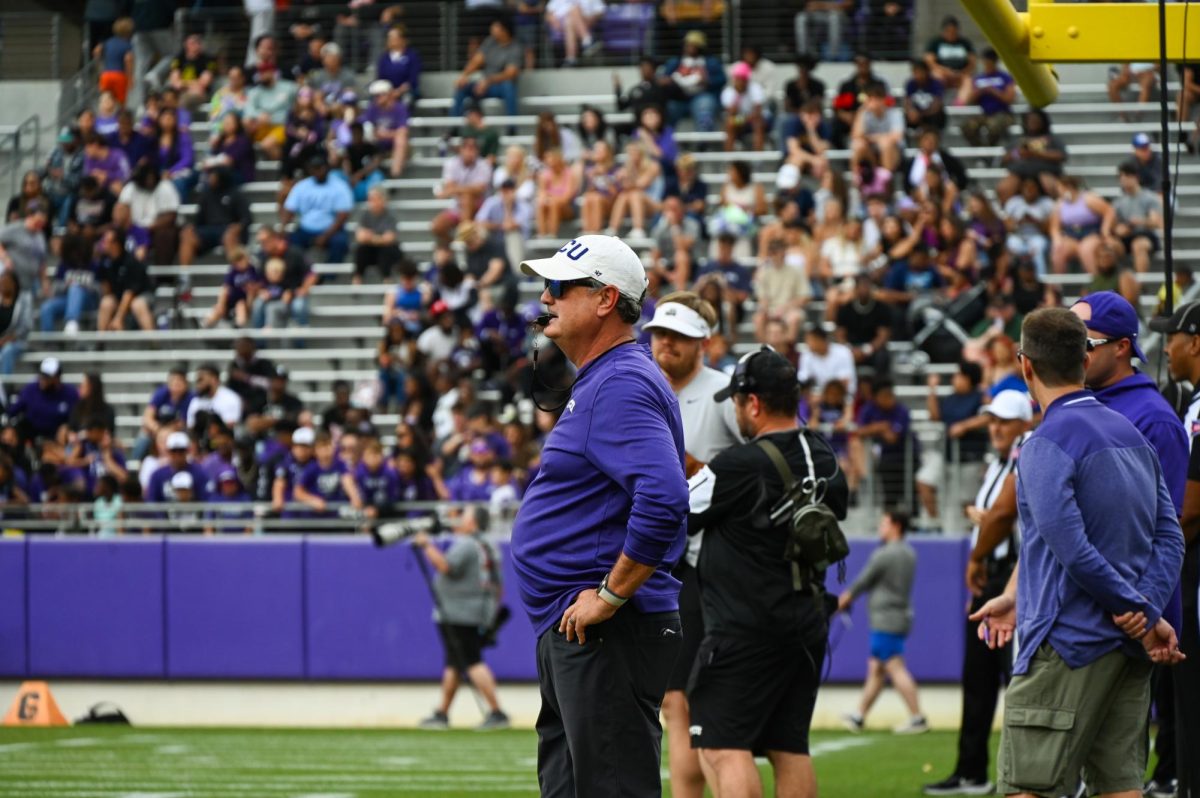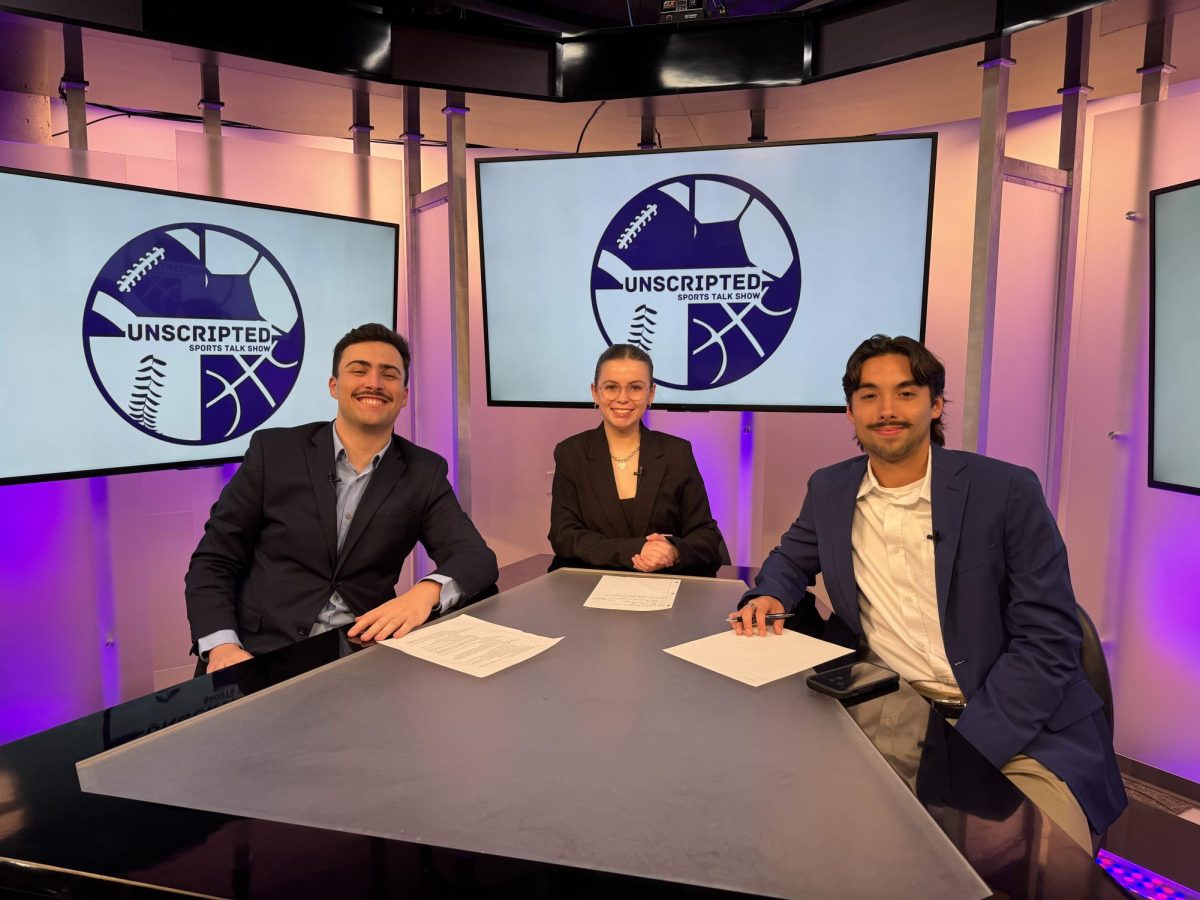Editor's Note: A previous version of this story had an incorrect caption on the photo. It has since been corrected.
Despite numerous historical rivalries being shredded apart due to conference realignment, the Battle for the Iron Skillet continues on, thanks in large part to a continued commitment from TCU athletic director Chris Del Conte.
Del Conte said there are a number of reasons to play against SMU in out-of-conference play each year, including SMU’s newly-minted status as a member of the American Athletic Conference.
“I think the question is ‘Why not play them?’ ” Del Conte said. “It’s a game that makes sense.”
Del Conte said both he and head football coach Gary Patterson enjoy scheduling one marquee game against a BCS opponent, one FCS (formerly Division I-AA) opponent and a game against SMU to fill TCU’s out-of-conference football schedule each year.
TCU’s is on contract to play SMU each year through 2017, according to the athletic department’s football schedule.
Del Conte said SMU’s location and TCU’s ability to travel play a large part in keeping a constant scheduling against SMU. Because of the implications of the rivalry, the game has a strong presence for football fans.
“Football becomes relevant that day for the Metroplex,” Del Conte said.
Playing Wyoming or Air Force at home didn’t have the same energy from fans or care from alumni, Del Conte said, and didn’t have employees “bragging by the water cooler” about the games.
With SMU, a majority of graduates work in the region alongside TCU graduates, which intensifies the relevancy of the game, Del Conte said.
Beyond the implications of passion from fans and alumni, Del Conte said he sees a financial value in playing SMU every year, as he considers games in the Dallas-Fort Worth region as a virtual home game.
“To me, it’s still a home game,” Del Conte said, regarding TCU’s attendance at games in the Metroplex. “I’m running a business enterprise and always trying to get six or seven home games a year.”
SMU athletic director Rick Hart and deputy athletic director Matt Roberts were on vacation and unavailable for comment on the rivalry.
SMU spokesperson Brad Sutton said in an emailed statement that SMU shared similar reasons with TCU to keep the rivalry in tact, stating “our series with TCU represents one of our longest and richest rivalries and we value that tradition.”
Following the money
The money has a financial benefit for both universities as well, Del Conte said.
TCU received $200,000 from SMU to play in Dallas on Sept. 29, 2012, said TCU associate athletic director Jack Hesselbrock.
Hesselbrock also said that there are many “special arrangements” made with SMU each year for the game, due to the history of the rivalry and the programs. Hesselbrock said the arrangements will vary from year to year.
He said that in 2012, some of those arrangements included receiving 400 complimentary tickets and 50 sidelines passes from SMU.
SMU held rights to the television and radio broadcasts in 2012, while TCU band members, cheerleaders and mascots were allowed into the game free of charge. In addition, TCU held a video exchange with SMU, which included three prior TCU games.
Hesselbrock said TCU will pay $200,000 when the team plays SMU in Fort Worth on Sept. 28, 2013. He also said TCU will give 400 complimentary tickets and 50 sideline passes, while holding the rights to the television and radio broadcasts.
Sutton, speaking on behalf of SMU’s athletic department, declined to speak about SMU’s financial numbers or confirm TCU’s numbers. As private institutions, SMU and TCU are not subject to public records requests.






